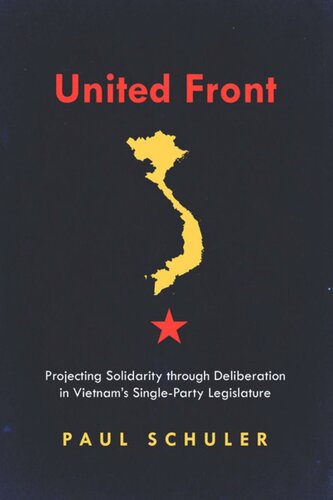

Most ebook files are in PDF format, so you can easily read them using various software such as Foxit Reader or directly on the Google Chrome browser.
Some ebook files are released by publishers in other formats such as .awz, .mobi, .epub, .fb2, etc. You may need to install specific software to read these formats on mobile/PC, such as Calibre.
Please read the tutorial at this link: https://ebookbell.com/faq
We offer FREE conversion to the popular formats you request; however, this may take some time. Therefore, right after payment, please email us, and we will try to provide the service as quickly as possible.
For some exceptional file formats or broken links (if any), please refrain from opening any disputes. Instead, email us first, and we will try to assist within a maximum of 6 hours.
EbookBell Team

4.4
52 reviewsConventional wisdom emerging from China and other autocracies claims that single-party legislatures and elections are mutually beneficial for citizens and autocrats. This line of thought reasons that these institutions can serve multiple functions, like constraining political leaders or providing information about citizens. In United Front, Paul Schuler challenges these views through his examination of the past and present functioning of the Vietnam National Assembly (VNA), arguing that the legislature's primary role is to signal strength to the public. When active, the critical behavior from delegates in the legislature represents cross fire within the regime rather than genuine citizen feedback. In making these arguments, Schuler counters a growing scholarly trend to see democratic institutions within single-party settings like China and Vietnam as useful for citizens or regime performance. His argument also suggests that there are limits to generating genuinely "consultative authoritarianism" through quasi-democratic institutions. Applying a diverse range of cutting-edge social science methods on a wealth of original data such as legislative speeches, election returns, and surveys, Schuler shows that even in a seemingly vociferous legislature like the VNA, the ultimate purpose of the institution is not to reflect the views of citizens, but rather to signal the regime's preferences while taking down rivals.